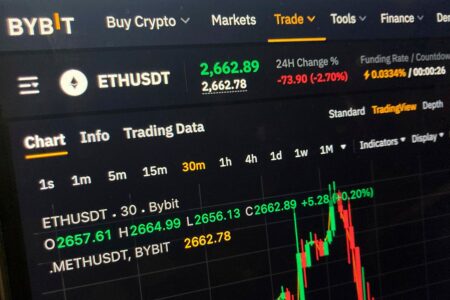The latest report from the International Energy Agency shows that the world is close to reaching peak CO2 emissions this year. While the sector as a whole is transforming, leading the way are the thousands of startups now emerging.
Companies such as Fram Energy, Pathways, Vycarb, Synonym, and Voltpost are leveraging new technologies like gen AI, riding on the back of regulatory changes and responding to consumer demands for sustainability. They all aim to decarbonize industries, optimize energy efficiency and democratize access to renewable energy. Each offers unique solutions that address critical gaps in the environmental ecosystem.
Fram Energy is targeting an underserved segment of the solar market: rental properties. With less than 0.1% of rental households having access to solar power, the company tackles the “split incentive” issue, where landlords lack motivation to install solar panels since tenants pay the energy bills. CEO Charlotte Meerstadt explains: “Our software splits the savings from solar between landlords and tenants, creating a win-win situation and unlocking a new market for the solar industry.” Fram Energy’s approach not only democratizes access to clean energy but also aligns financial incentives across stakeholders.
Pathways is creating the “data layer for sustainable manufacturing,” partnering with material manufacturers to provide environmental product declarations (EPDs)—the sustainability equivalent of nutrition labels. Using AI and digital twins, Pathways streamlines what was once a manual, time-intensive process. “We move beyond one-time assessments to provide ongoing insights that help manufacturers reduce carbon and chemical footprints,” says co-CEO Alex Cooper.
Vycarb focuses on carbon removal and storage using water-based technology to replicate and accelerate natural oceanic carbon cycles. This process converts CO2 into bicarbonate, a stable form of carbon that remains in the ocean for thousands of years. CEO Garrett Boudinot explains: “Our fully measured system ensures customers know exactly how much CO2 we permanently remove, addressing both environmental and market demands for high-quality offsets.”
Synonym accelerates the production of next-generation biomanufacturing ingredients by building infrastructure and digital tools to turn lab breakthroughs into market-ready products. CEO Edward Shenderovich elaborates: “We leverage AI to predict proteins and modify genomes, enabling the production of new materials such as spider silk for textiles and body armor.”
Voltpost Voltpost retrofits existing street lights with EV charging plugs, reducing costs and accelerating deployment. The company integrates additional services such as Wi-Fi hotspots to enhance the utility of urban infrastructure. “We look at streetlights as multifunctional hubs,” says CEO Jeffrey Prosserman. “Our partnerships, like those with AT&T, allow us to offer connectivity solutions alongside charging, creating a robust public charging ecosystem that adapts to diverse community needs.”
Grants, Incentives and Preparing for Policy Shifts
Grants and incentives play a pivotal role in enabling these startups to scale their solutions, but the looming change in administration raises concerns about the continuity of these programs. Fram Energy’s Charlotte highlights their strategy: “We’re focusing on geographies where our product remains viable even without federal support. By building networks and refining our business case, we aim to mitigate dependency on federal incentives.” Similarly, Jeffrey at Voltpost underscores the importance of private partnerships: “By collaborating with companies like AT&T, we can reduce reliance on government funding while enhancing deployment speed and community impact.”
Garrett at Vycarb points to market resilience: “Our primary revenue comes from the voluntary carbon market, which insulates us from federal policy changes. In fact, reduced federal leadership often drives local and corporate climate commitments, creating new opportunities.” Alex at Pathways observes that sustainability efforts must align with economic impact: “Helping manufacturers demonstrate both environmental and financial benefits ensures that sustainability becomes a business imperative, not just a regulatory requirement.”
Trends Shaping 2025
Looking ahead, decentralization, gen AI integration and cross-sector collaboration are key trends reshaping these industries. Charlotte sees a shift toward decentralized energy systems: “Buildings are becoming their own power plants, driven by falling storage costs and rising grid reliability concerns.” Edward at Synonym believes AI’s impact on biomanufacturing is just beginning: “AI allows us to predict and design proteins at scale, enabling revolutionary products.”
Jeffrey highlights the historical significance of infrastructure investment: “We’re in a unique moment where local governments are deploying charging budgets for the first time, comparable to the early days of grid or rail expansion.” Meanwhile, Garrett notes the increasing demand for high-quality carbon offsets: “Companies now recognize that offsets must be rigorous to avoid liabilities, which drives demand.”
Together, these startups are navigating challenges while seizing opportunities to redefine their sectors. By blending innovation with strategic foresight, they are shaping a sustainable and economically viable future for us all in 2025 and beyond.
For more like this, check out: Top Four Clean Mobility Startups Shaping 2025
Read the full article here











